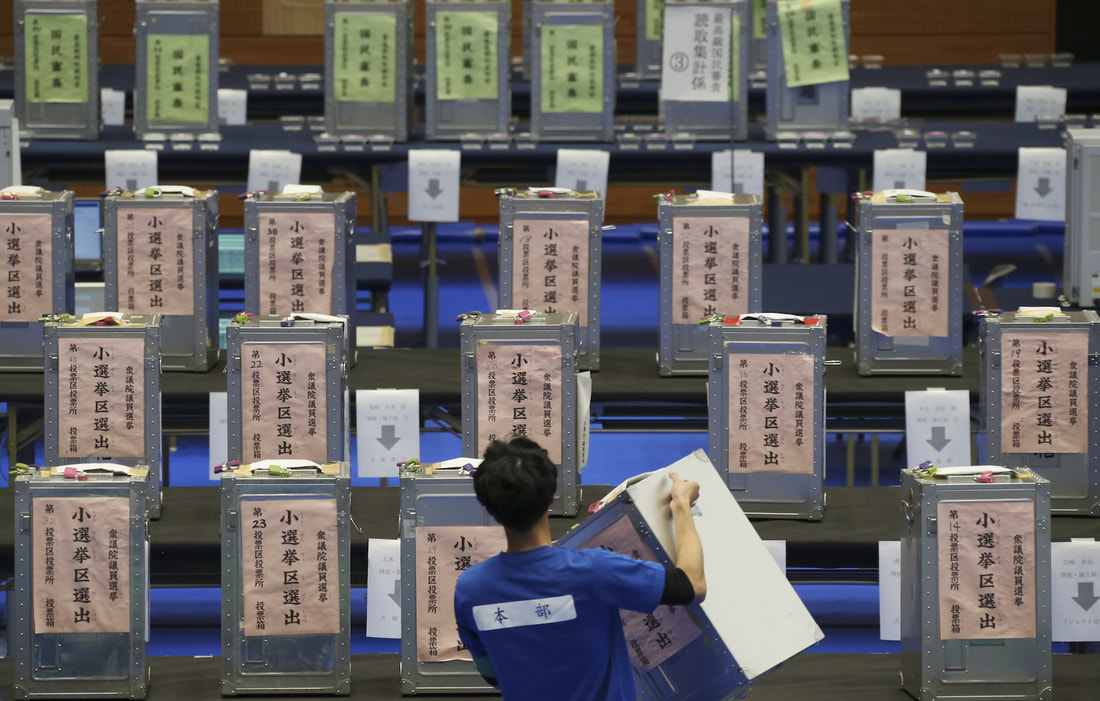|
When Prime Minister Shinzo Abe announced Japan would hold an election, we showed how the media mixed fact with opinion in its coverage. The media kept with this trend when reporting on Sunday’s election itself. Specifically, the outlets we analyzed presented a number of opinions about the election results and what may occur as a result, but at times this subjective information was presented as though it were fact. When this happens, it can discourage readers from asking critical questions that could promote a more impartial, consistent and objective view of a news event. Let’s look at a few examples below of separating fact from opinion. We’ll present what the articles said, including opinion and subjective, vague language (spin), which is marked in red. Then, we’ll show on what facts these opinions may be based, and present various lines of critical questioning for readers to keep in mind as the story evolves. “Fear” over possible changes to Japan’s constitution The Washington Post “South Korea and China, which neighbor Japan, also are nervous about what they see as the potential return of a militaristic Japan.” The Guardian “Any weakening of Japan’s pacifist credo is expected to anger China and South Korea, where many still harbour bitter memories of Japanese militarism in the first half of the 20th century. Liberals in Japan, meanwhile, fear that ‘normalising’ the country’s armed forces will lead to their involvement in US-led wars.” Reuters “Critics fear [revising the constitution] would allow an expanded role overseas for the military.” → Facts
It’s conjecture to say a change to the constitution may “anger” some people, and that others may “fear” it; these are opinions or judgements and facts aren’t provided to back them. But if readers interpret these opinions as fact, they may not examine the examples above further. For example, what measurable, concrete effects, both beneficial or harmful, might the change have? And beneficial or harmful to whom? What military actions would be allowed under the change that isn’t allowed now? How would the revised constitution compare to other countries’ military policies? “Scandals,” a “gamble,” and a “crushed” opposition Japan Times Abe’s “grip on power began slipping in July after his LDP was clobbered by a fledgling party … His Cabinet’s popularity had plunged to its lowest since he returned to power in 2012, damaged by ministerial missteps, gaffes, Abe’s alleged cronyism scandals and a cover-up of politically sensitive data in the Defense Ministry.” Reuters, Japan Times “Abe’s gamble pays off…” The Guardian Abe’s “party crushed untested opposition parties in Sunday’s general election.” → Facts
The media might be using the facts above to form its opinions that Abe’s party “crushed” the opposition and the election was a “gamble.” But because these are vague and subjective terms, not measurable facts, we are left to guess on what information they’re based. Moreover, the sensationalism of the highlighted words may obscure the underlying facts. For example, we’re told there are alleged “missteps,” “gaffes” and “cronyism scandals,” but what specifically happened? Separating fact from opinion helps readers find a more objective, impartial view of what’s happening in the world. This doesn’t mean opinions are bad. On the contrary, having a wide range of diverse views can help readers infer practical interpretations of the facts, such as why a change to Japan’s constitution may be beneficial or harmful. However, when news outlets report these opinions as though they are fact, it conflates objective data with subjective interpretation, which distorts information and thereby our view of the world. If we use the news to record history and make decisions, then it is important that the news be more like a scientific report (e.g. evidence-based, consistent, and objective) than an opinion piece. This is our opinion. (wink) Written by Leah Mottishaw and Shane Mottishaw Edited by Shane Mottishaw, Rosa Laura Junco and Jens Erik Gould Visit the original story on Knife Media’s website Follow us on Twitter @theknifemedia Follow us on LinkedIn Comments are closed.
|
Jens Erik GouldJens is a political, business and entertainment writer and editor who has reported from a dozen countries for media outlets including The New York Times, National Public Radio and Bloomberg News Archives
February 2018
Categories
All
|

 RSS Feed
RSS Feed